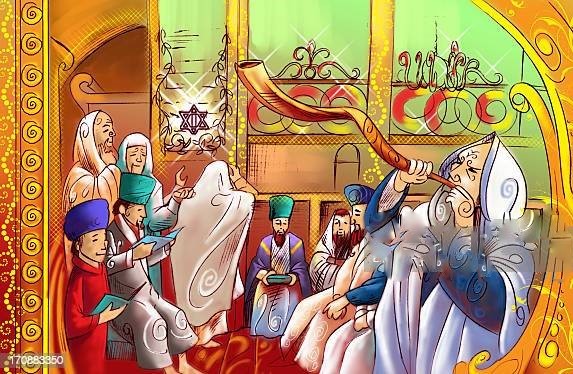TIFERET: YESHIVAT HAVERIM יְשִׁיבָה חברים – BABYLONIAN TALMUD p77

And it seems that so is the case, as Rabh said one may place a lamp upon a palm tree at any time
while it is yet day on Friday, in order that it may burn on the Sabbath; but one may not put a
lamp upon the same on a biblical feast day. (It is permitted to place a lamp on a palm tree on the
Sabbath because there is no fear of the tree, which is Muktza [designated], being used; but on a
biblical feast day it is prohibited for fear that one while depositing or removing the lamp will
also use the palm tree; and that is prohibited.)
And this is correct only in accordance with the theory of R. Jehudah; but should Rabh hold with
R. Simeon, why does he make a distinction between the Sabbath and a biblical feast day? The
law of Muktza does not exist at all according to R. Simeon.
Is that so? Did not Rabh decide, when he was questioned whether one may remove an
extinguished ‘Hanukah light on the Sabbath for fear of the Magi (this has already been
mentioned in a previous connection), that it may be done? The time of danger is different. 1 R.
Kahana and R. Assi then questioned him: “Does the Halakha so prevail?” and he answered: “R.
Simeon is worthy to be relied upon in times of danger.”
Resh Lakish questioned R. Johanan: “May wheat that has been sown but that has not yet
sprouted, or eggs that are still under the hen, be eaten on the Sabbath? Does he (R. Simeon)
disregard the law of Muktza only in such cases where the objects were put aside with no
intention of ever being used again, or does he disregard Muktza under all circumstances?” He
(R. Johanan) replied: “There is no Muktza in his theory but the oil in a burning lamp, because if
poured in a lamp for the purpose of keeping the Sabbath-light commandment it is designated for
that express function, and as it is not permitted to extinguish that light, the intention not to use
the oil for any other purpose is self-evident.
 FRIDAY PRAYER: NETZACH-SHACHARIT שַחֲרִית MORNING PRAYER
FRIDAY PRAYER: NETZACH-SHACHARIT שַחֲרִית MORNING PRAYER FRIDAY PRAYER: NETZACH-TIKKUN CHATZOT תקון חצות-TIKKUN RACHEL & TIKKUN LEAH
FRIDAY PRAYER: NETZACH-TIKKUN CHATZOT תקון חצות-TIKKUN RACHEL & TIKKUN LEAH FRIDAY PRAYER: NETZACH- THE HARP OF KING DAVID – TIKKUN CHATZOT תקון חצות MIDNIGHT TO DAWN PRAYER
FRIDAY PRAYER: NETZACH- THE HARP OF KING DAVID – TIKKUN CHATZOT תקון חצות MIDNIGHT TO DAWN PRAYER